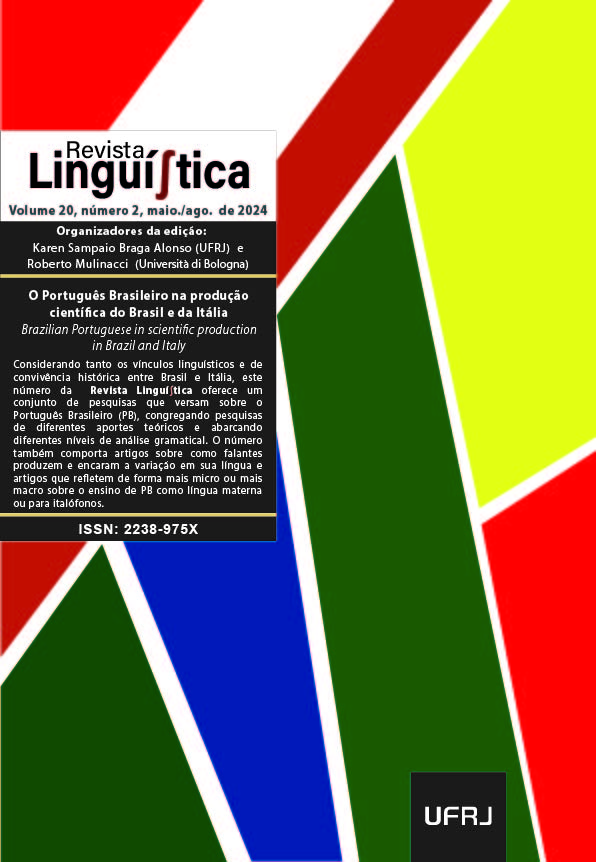Duplicação do sujeito no português brasileiro: uma análise dos pronomes resumptivos
DOI:
https://doi.org/10.31513/linguistica.2024.v20n2a64470Abstract
This paper investigates some specific syntactic, prosodic, and morphological properties of subjects and pronouns in Brazilian Portuguese (BP) subject doubling (SD) constructions. The study demonstrates that neither the subject nor the pronoun exhibits uniform behavior within this construction. Adopting the “one feature, one head” principle (Kayne, 2005), this research argues that the subject may occupy positions in both the CP domain, as a topic, and the TP domain, as a grammatical subject. Furthermore, based on the grammatical properties of pronouns, this study posits that pronouns in BP SD can function either as strong or weak forms, aligning with the analysis of Cardinaletti and Starke (1994). The hypothesis is that strong pronouns can occupy Spec,TopP (Rizzi, 1997) or Spec,SubjP (Cardinaletti, 2004), similar to the subject, whereas weak pronouns, by contrast, occupy Spec,TP.Keywords: Brazilian Portuguese. Subject. Pronoun. Doubling. Cartographic syntax.
Downloads
Published
Issue
Section
License
Copyright (c) 2025 Revista Linguí∫tica

This work is licensed under a Creative Commons Attribution-NonCommercial 4.0 International License.
Authors who publish in the Revista Linguí∫tica agree with the following terms:
The authors maintain their rights, ceding to the journal the right to first publication of the article, simultaneously submitted to a Creative Commons license permitting the sharing with third-parties of published content as long as it mentions the author and its first publication in the Revista Linguí∫tica.
Authors may enter into additional agreements for the non-exclusive distribution of their published work (for example, posting in online institutional or non-profit repositories, or book chapters) so long as they acknowledge its initial publication in the Revista Linguí∫tica.

The journal Revista Linguí∫tica is published by the Post-Graduate program in Linguistics of UFRJ and employs a Creative Commons - Attribution-NonCommercial 4.0 International (CC-BY-NC).









